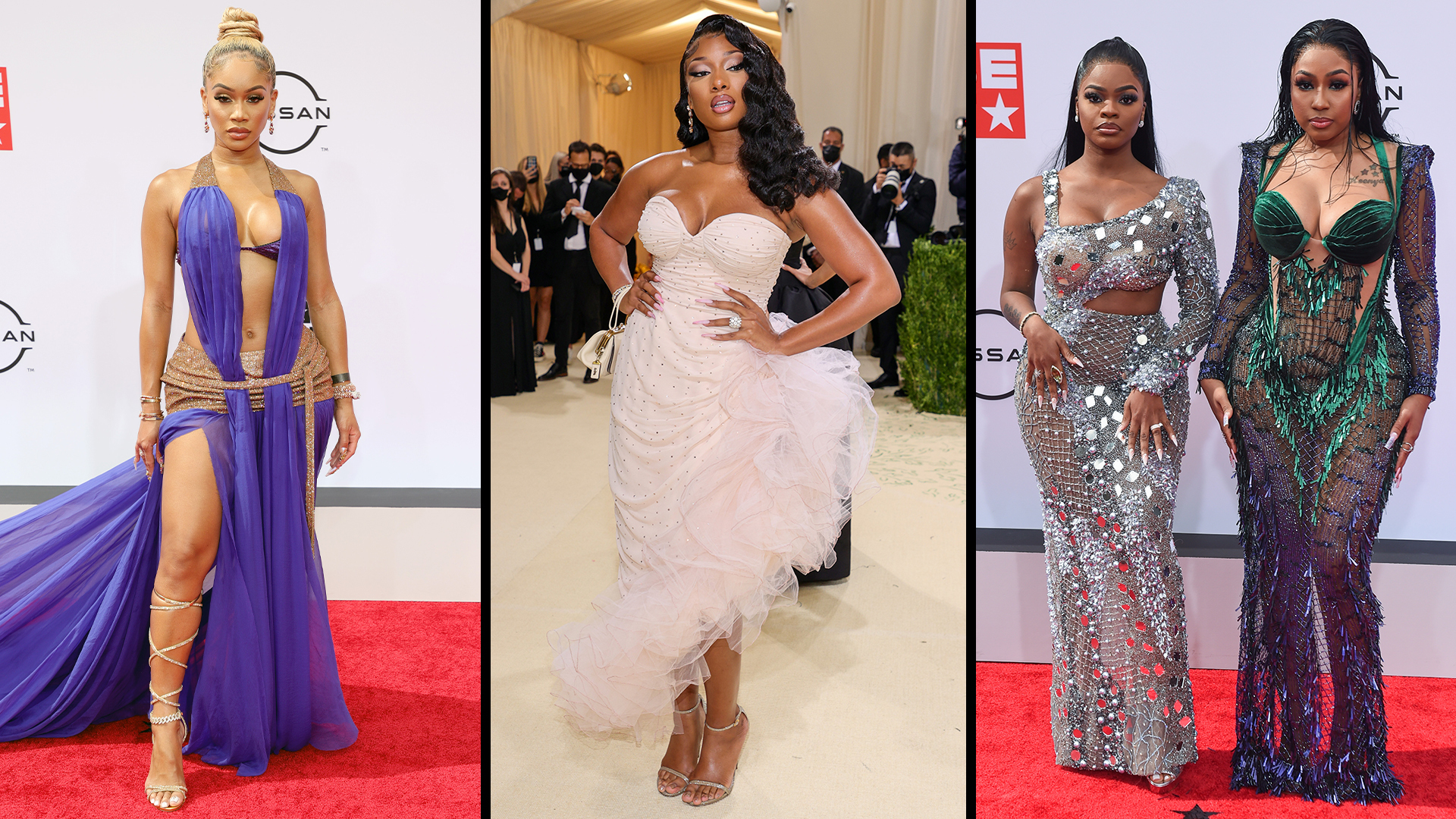Imagine showing up to work one day to give a presentation. This isn’t just any presentation, though—it’s one that you’ve been preparing for since the onset of your career, and you’re pretty excited to showcase your chops. Imagine leaving said presentation and hopping on social media to see a gaggle of keyboard warriors picking a part your entire performance all because it didn’t live up to their expectations. Now, here’s the gag: the majority of the spectators offering unwanted opinions have never worked in your field nor do they have a semblance of understanding on it. Crazy, right? Apparently not, since that’s what happened to Saweetie recently.
Last month, the “Tap In” rapper debuted her newest song “Icy Chain” on the widely-viewed Saturday Night Live (SNL). The live performance featured elaborate choreography atop a whimsical, winter wonderland theme. Now, one would think that the Grammy-nominated musician would receive praise for being able to juggle a multitude of roles while performing, but that wasn’t the case. Social media users were less than enthused at her attempt to dance, rap and maintain her stamina all at the same time.This isn’t the first time the California native has come under fire for her performing skills and it likely won’t be the last, considering the impossible standards that she and women rappers are held to. No one is above criticism, especially in the entertainment space, but we need to have some serious dialogue about the ridiculous double standards that plague women rappers in comparison to their male counterparts.
When Megan Thee Stallion was allegedly assaulted by Tory Lanez, one would think that the Black community would show up in droves to support her. Weirdly so, the exact opposite happened with folks attempting to dissect every part of the alleged incident and some even accused her of lying. Since when should a victim's assailant be lauded over the actual victim? Male rappers have also been the victims of gunshot wounds yet the narrative has never been as nasty as it was towards Megan. It's hard to recall whether said male rappers were accused of lying, either. If we don't want to spend time unpacking that, let's divert our attention to the criticisms that Black women rappers, namely the City Girls and Cardi B, received for simply being able to afford Birkin bags. These women, who are well above most of our tax brackets, were accused of not being to afford real Birkin bags as well as cheapening the brand. Male rappers have donned exuberant jewelry, clothes and other material possessions for years yet there has been little criticism on whether they're able to afford these things or if they're cheapening the brand.
Two years ago, when Jermaine Dupri boldly reduced the artistry of women rappers to “strippers rapping,” it was very telling. It was telling of the blatant disregard for this renaissance period of the hip-hop industry in which women are thriving by telling their own stories on their own accord. It was a literal display of the weird dichotomy of men building entire careers off of the condemnation of women in their music and women receiving flack for uplifting themselves in a way that we haven’t seen before. That’s not to say that women rappers haven’t existed before this resurgence, but we have yet seen anything like what we’re seeing today, a much-needed overflow of women from various backgrounds. What sense does it make to condemn someone for simply talking about themselves to gain a profit when you’ve literally built a fortune in doing so? These double standards aren’t only ludicrous, they’re simply dangerous.
Many people are familiar with the term misogyny, but are you familiar with the term misogynoir? For those who are not, it is defined as the specific sexist and oppressive treatment that Black women face. Like much of the horrors that have been inflicted upon the Black community, it is directly linked to white supremacy. It’s not a secret that a great deal of the world still has a belief that Black women are supposed to be narrowly confined to shiny boxes of respectability that the world creates for them. With the majority of women rappers being Black women, it should come as no surprise that they receive ill treatment for rebelling against those outdated and discriminatory norms by exercising creativity and agency over themselves. In doing so, they’re not only contributing to collective liberation for themselves but for generations to come.
Since hip-hop’s inception, we’ve been forced to sit through some of the laziest, uncreative and, quite frankly, boring performances to date. Whether it was the recitation of the same lackluster bars that (somehow) garnered awards or the lack of ingenuity in terms of stage presence, there’s a common denominator—the men. The vast majority of these men have been able to evade true accountability for their actions on and off the stage for far too long, so any critique of Saweetie or her female peers must cease unless there’s a willingness to throw the males in there, too. In 2022, let’s do away with the double standards and put energy towards true allyship and support of Black women and their inventiveness.
